Giant TCR Advanced Pro 0 review
The legendary Giant TCR is in its fourth decade and is showing no signs of slowing down – it just keeps getting faster, as this latest aero-ised version demonstrates
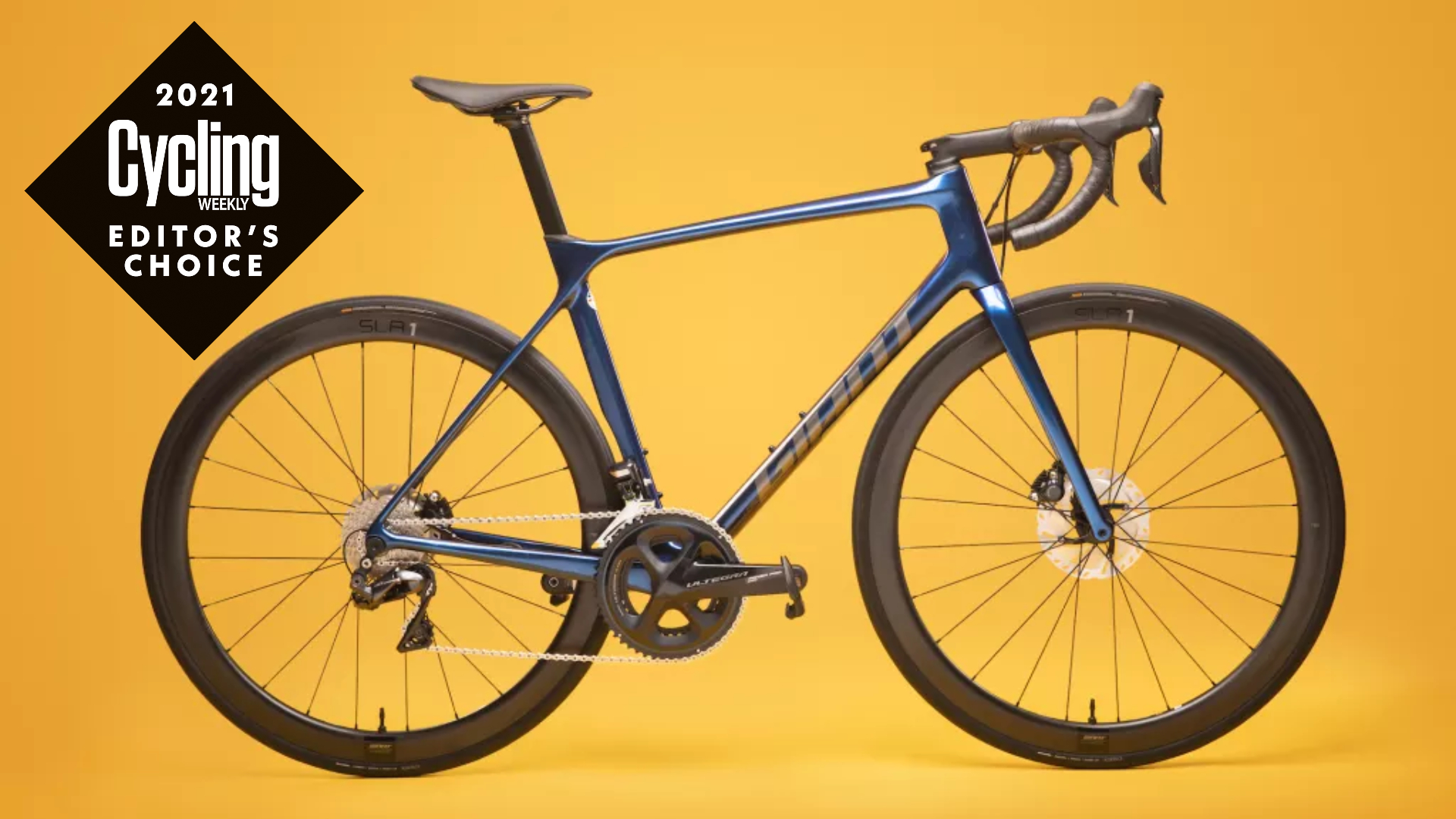
The Giant TCR Advanced Pro 0 gets everything right – an impressive spec that includes a power meter and hookless carbon wheels, a low weight and best of all it rides beautifully.
-
+
Light
-
+
Lovely handling
-
+
Power meter
-
+
Fast wheels
You can trust Cycling Weekly.
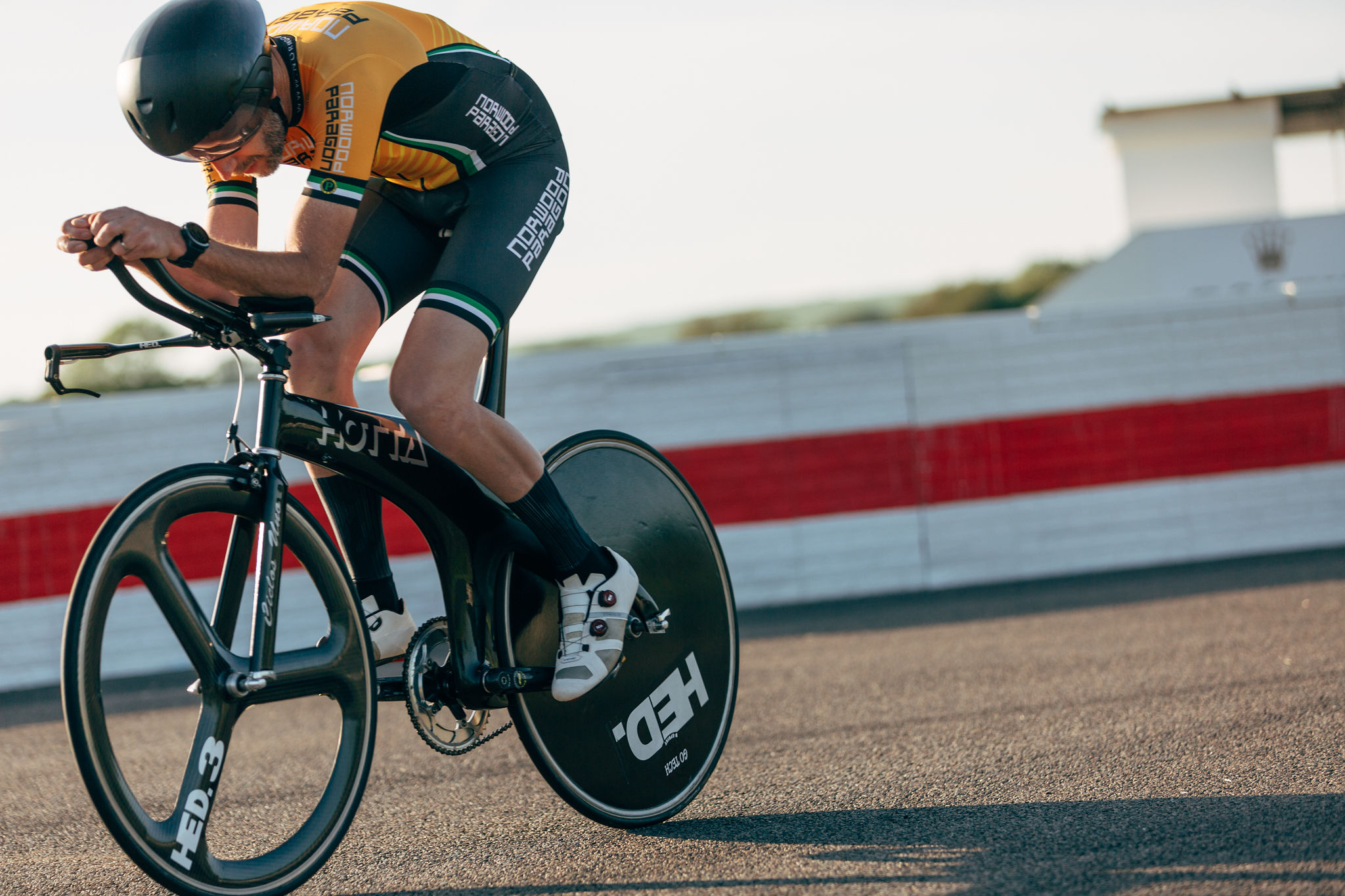
We tested the Giant TCR Advanced Pro 0 as part of a four bike shoot out which also included the Specialized Tarmac SL7 Expert, BMC Teammachine SLR Two and Scott Addict RC 15.
Each bike was tested with its stock tyre, and a control tyre (Schwalbe Pro One TLE, 25mm), using the same test loop which covered 32 miles and included ascents and descents of Leith Hill and Box Hill in Surrey. The other reviews and final conclusions will be published in Cycling Weekly magazine, on Thursday April 29.
The Giant TCR needs no introduction – but here's a quick one anyway. Designed by British maverick inventor Mike Burrows, the ‘Total Compact Road’ has been a regular fixture in the pro peloton since the 1990s. It’s actually not a fixture of the pro peloton this year, but this latest version of the TCR – which adds aerodynamics to its traditional high stiffness and low weight thanks to the compact design – was ridden by Greg Van Avermaet last year in a glorious gold/black fade.
Giant TCR Advanced Pro 0: frame and fork
Giant has the Propel as its aero bike and the TCR as the lightweight all-rounder but, as with Scott's Addict and Foil, the two are edging closer together with the TCR adopting the tube profiles and integration of its slipperier stablemate.
The head tube, down tube and fork all get an aero makeover. Even the massively wide down tube is optimised for airflow when a standard bottle is fitted, according to Giant.
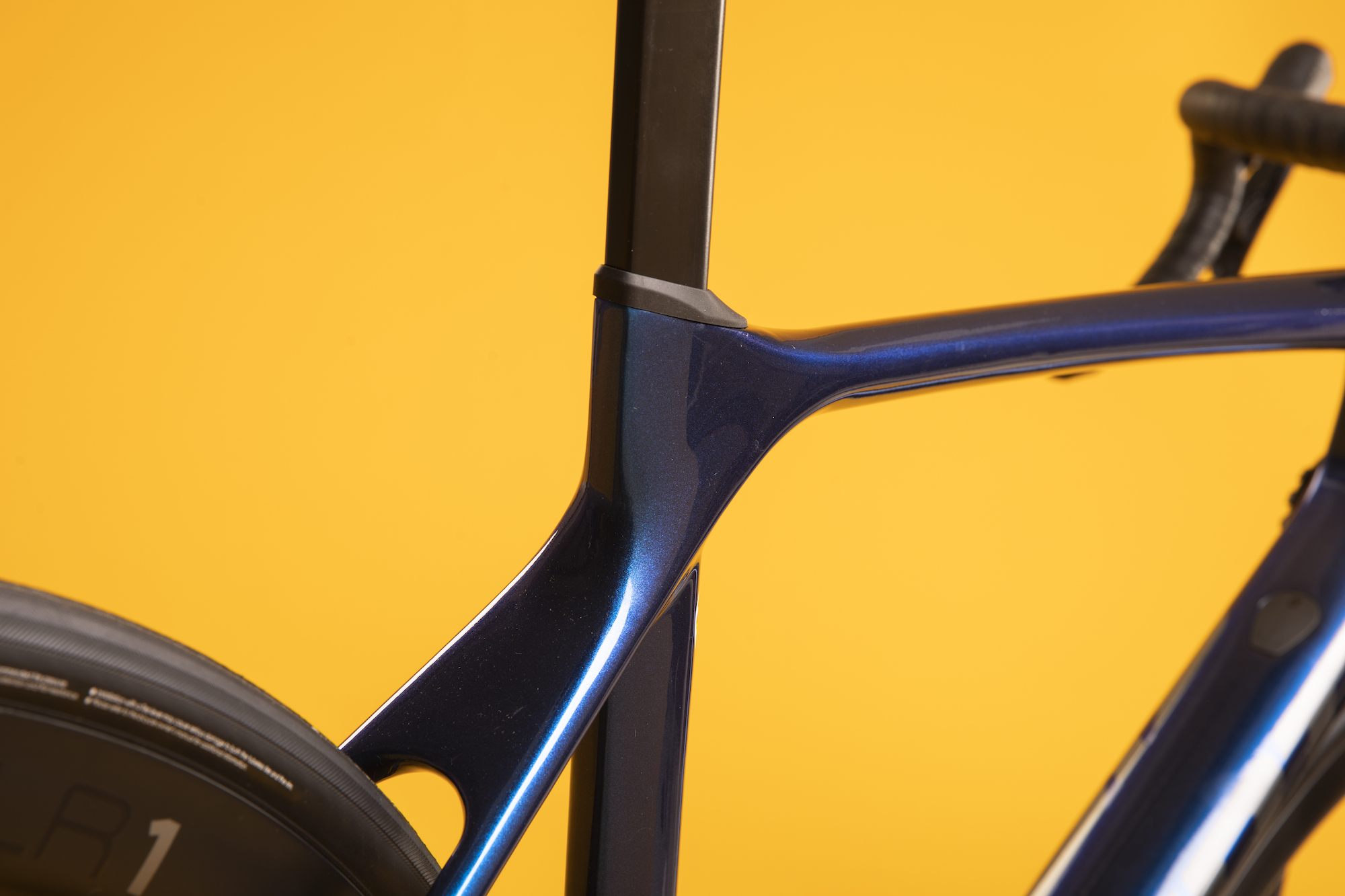
However, it keeps its sloping top tube and doesn’t drop its seatstays – there’s still that very recognisable Giant TCR silhouette.
This ‘consumer’ version has a separate seatpost, unlike the flagship TCR Advanced SL 0 that has an integrated seatmast. The other main difference is that this bike costs almost half the price of the flagship model and that’s not just because it has an Ultegra Di2 groupset and Giant wheels rather than a SRAM Red eTap AXS groupst and Cadex wheels: Giant uses its second-tier carbon to bring the price down. The Advanced Grade Composite will be slightly heavier and not as stiff as Advanced SL-Grade Composite, but as we’ll see, the ride quality of the lower-priced bike is exceptionally good despite this, and the weight is very respectable too.
Giant hasn’t gone to town with cable integration on the TCR, even on the flagship model, which is possibly a little surprising since the Propel was one of the first road bikes with an integrated cockpit when it was unveiled in 2017. But this will be good news for home bike fitting and for those who don’t necessarily want to cut their fork steerer and commit to a single position for the rest of the bike’s life (short of buying a new fork) as round spacers can easily be swapped under or over the stem. Our test bike's stem has the steerer already cut as Giant asked me for my setup measurements in advance of sending the bike, but you'll get some adjustment room on a new one.
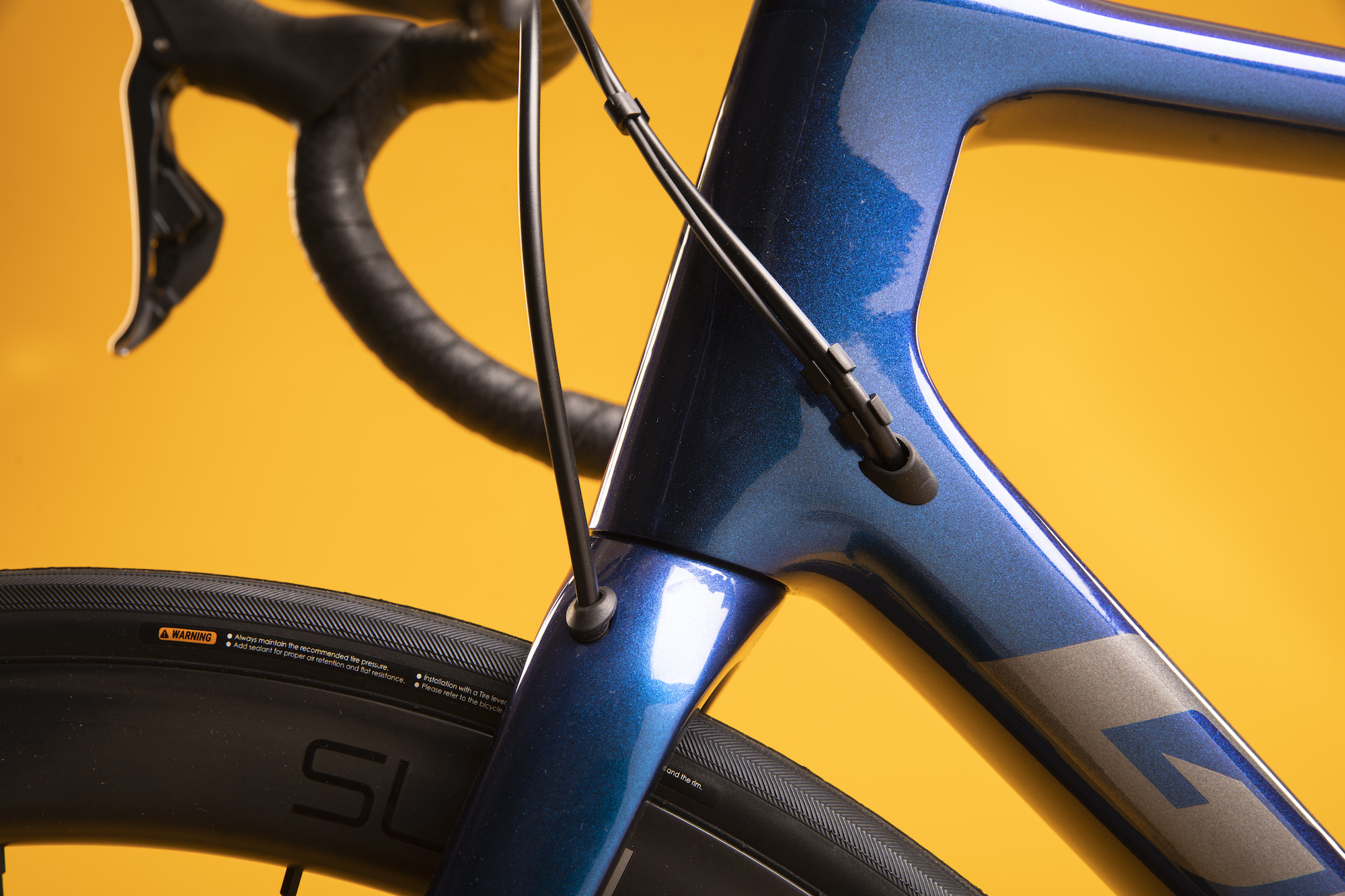
There’s also more traditional routing for the rear brake hose and Di2 cable, emerging from the handlebar with a short exposed run, causing minimal disruption to the airflow before disappearing into the side of the head tube.
As for the geometry and sizing, the M/L is a 56 in old money and has classic 73° parallel angles. Stack and reach are well judged and don’t present any fitting issues – a ratio of 1.43, which is about average for a race bike this size. The chainstays are short at 405mm compared to the standard 410mm, helping with responsiveness at the rear.
Giant still makes the TCR in a rim brake version – almost a rarity for a top race bike these days.
Components
A full Shimano Ultegra Di2 groupset is par for the course at this price. We’ve reviewed it very favourably elsewhere so we’ll leave it at that. As is also standard, there’s the 52/36 chainset and 11-30 cassette that give all the range you need for the majority of road riding.
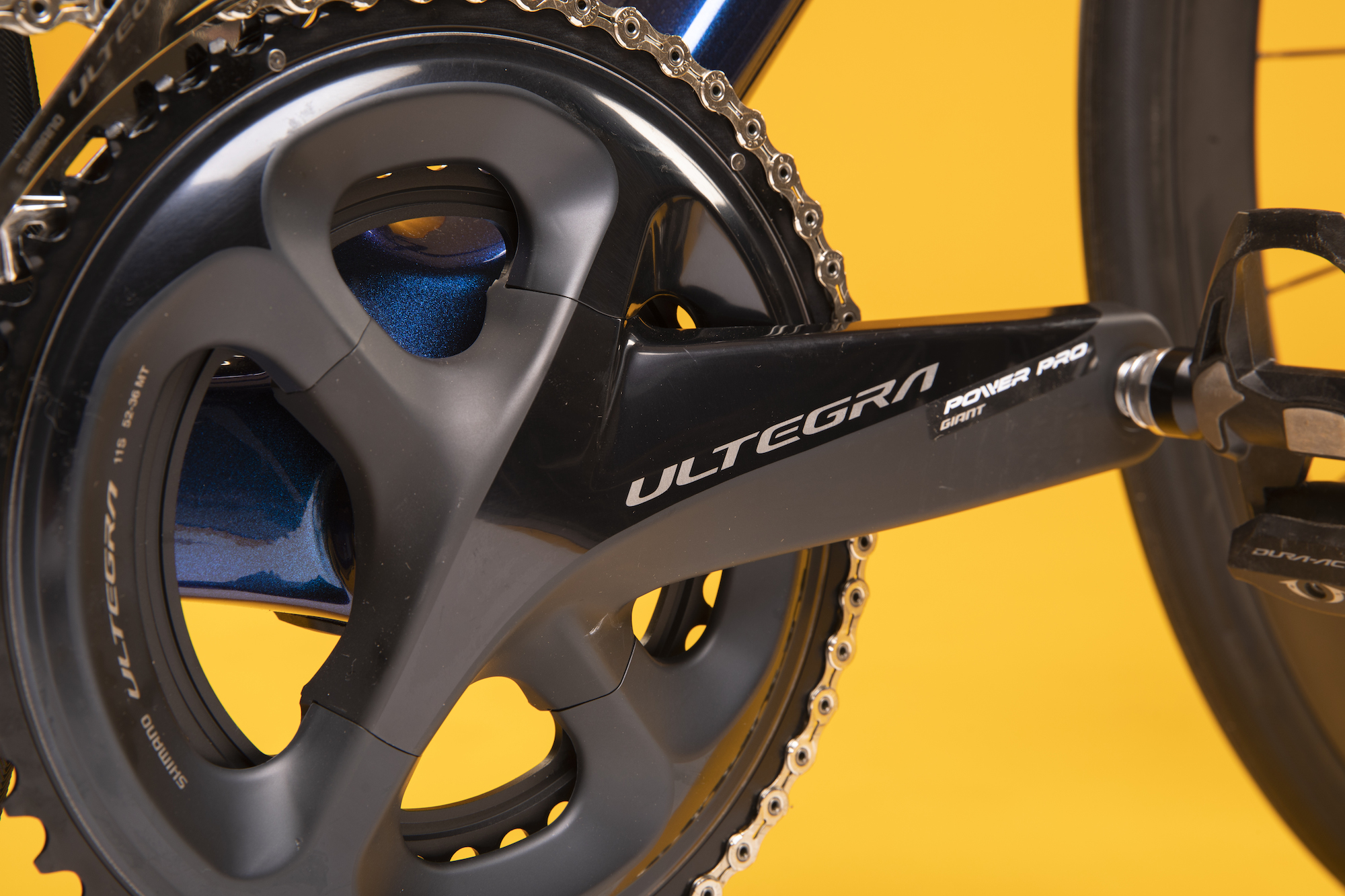
But the ace up the TCR’s sleeve is the Giant Power Pro power meter on the left-hand crank, something that none of the other three bikes we tested at the same time – the Specialized Tarmac Expert, the BMC Teammachine SLR TWO and the Scott Addict RC 15 – could offer. This is something that’s not strictly essential but really nice to have. Who spends £5K on a race bike without being interested in how many watts they can produce? Bought separately the Giant Power Pro-equipped Ultegra chainset costs £799.99, so you’re definitely getting value here.
The Giant SLR 1 42 Disc Carbon Wheelsystem is a £1,200, sub-1,500g set of wheels with the latest hookless rim tech – something Giant is fully committing to – and are the lightest, fastest, most expensive wheels on any of the four bikes in our grouptest. With a 42mm rim depth front and rear, they came set up tubeless with Giant’s Cadex Road Race 25mm tyres, which again, are high end.
The alu bar and stem are Giant’s own Contact SL components, 42cm and 110mm respectively with the size M/L. and the stem came with a bonus out-front computer mount, which was a nice touch.
As I mentioned, bar and stem are traditional, separate components using industry standard measurements. Yes, the cockpit is not as clean looking as that of the Scott or the Specialized, but it makes adjustment that much more straightforward. Personally I would always opt for ease of adjustability over aesthetics or single-figure watt savings.
Ride
The Giant had me at the first pedal stroke. I’ve ridden TCRs at virtually every stage of their journey right from the loud yellow aluminium ONCE ones that used to be everywhere through the pink T-Mobile carbon model in 2006... I’ve watched this bike grow up and I felt almost proud of how far it has come.
With its superior spec it's clearly the best on paper, and the lightest of the four too. When I felt it surge the first time I pressed down on the pedals I knew beyond doubt it was a test winner.
The ride quality is just superbly nuanced. The stiffness is there but it's not overdone – it feels lively and springy rather than brutally rigid. Having ridden our four bikes around the same test loop pretty close together it was easy to compare performances on various sections: it climbed efficiently, descending was stable and confidence inspiring. It had just the right amount of comfort without losing the feeling of connectedness. On the flat it was smooth and fast when rolling round a big gear. I came back with 19 little gold, silver and bronze medals and one top-10-finish trophy.
The Giant TCR Advanced Pro 0 just felt like 'my' bike. And I would happily ride it exclusively for the rest of the summer – but of course it's going back to Giant with the other three, just as all our test bikes do.
Value
Of our four test bikes, the Giant is the second lowest priced (only the BMC was cheaper at £4,500) but the spec is miles above all of them. I've already mentioned the Giant Power Pro power meter, which would cost £799.99 bought separately. The carbon wheels are the lightest and most expensive of the four sets here. There's no obvious area where corners have been cut and money has been saved – it all feels like quality kit.
It's also the lightest on test, and although weight is sometimes regarded as last decade's metric, who doesn't enjoy a lightweight bike? The next lightest bike in our test, the Specialized Tarmac Expert SL7, was almost half a kilo heavier at 7.81kg.
Maybe in this value section it's not quite a fair playing field since Giant is literally a giant Taiwanese bike brand that manufactures original equipment for other brands and harnesses huge economies of scale to bring in its own-branded bikes at lower prices than other people's (including those of its own clients). However, buying power can't necessarily design a great bike: coming full circle back to the radical, Mike Burrows-designed TCR, Giant has always innovated and it's this bold approach to bike design, and not just the competitive prices – though of course they are the icing on the cake – that makes Giant's road bikes so unbeatable.

Thank you for reading 20 articles this month* Join now for unlimited access
Enjoy your first month for just £1 / $1 / €1
*Read 5 free articles per month without a subscription

Join now for unlimited access
Try first month for just £1 / $1 / €1
Get The Leadout Newsletter
The latest race content, interviews, features, reviews and expert buying guides, direct to your inbox!
Simon Smythe is a hugely experienced cycling tech writer, who has been writing for Cycling Weekly since 2003. Until recently he was our senior tech writer. In his cycling career Simon has mostly focused on time trialling with a national medal, a few open wins and his club's 30-mile record in his palmares. These days he spends most of his time testing road bikes, or on a tandem doing the school run with his younger son.
-
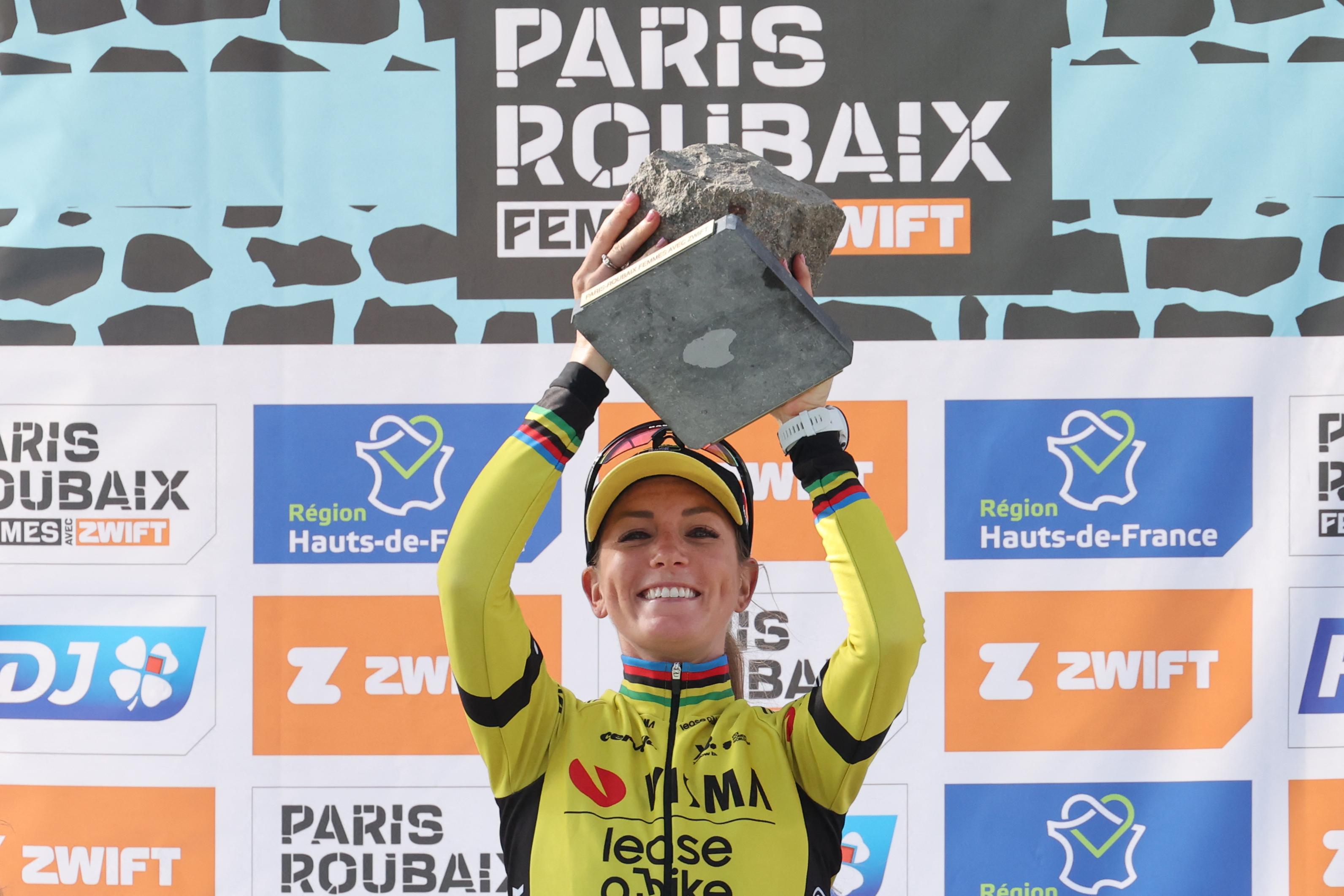 Pauline Ferrand-Prévot: ‘It wasn’t the plan to ride Roubaix but I felt good so I said why not?’
Pauline Ferrand-Prévot: ‘It wasn’t the plan to ride Roubaix but I felt good so I said why not?’Frenchwoman admits that her aim for her unexpected Roubaix debut was to support Visma | Lease a Bike teammate Marianne Vos
By Peter Cossins Published
-
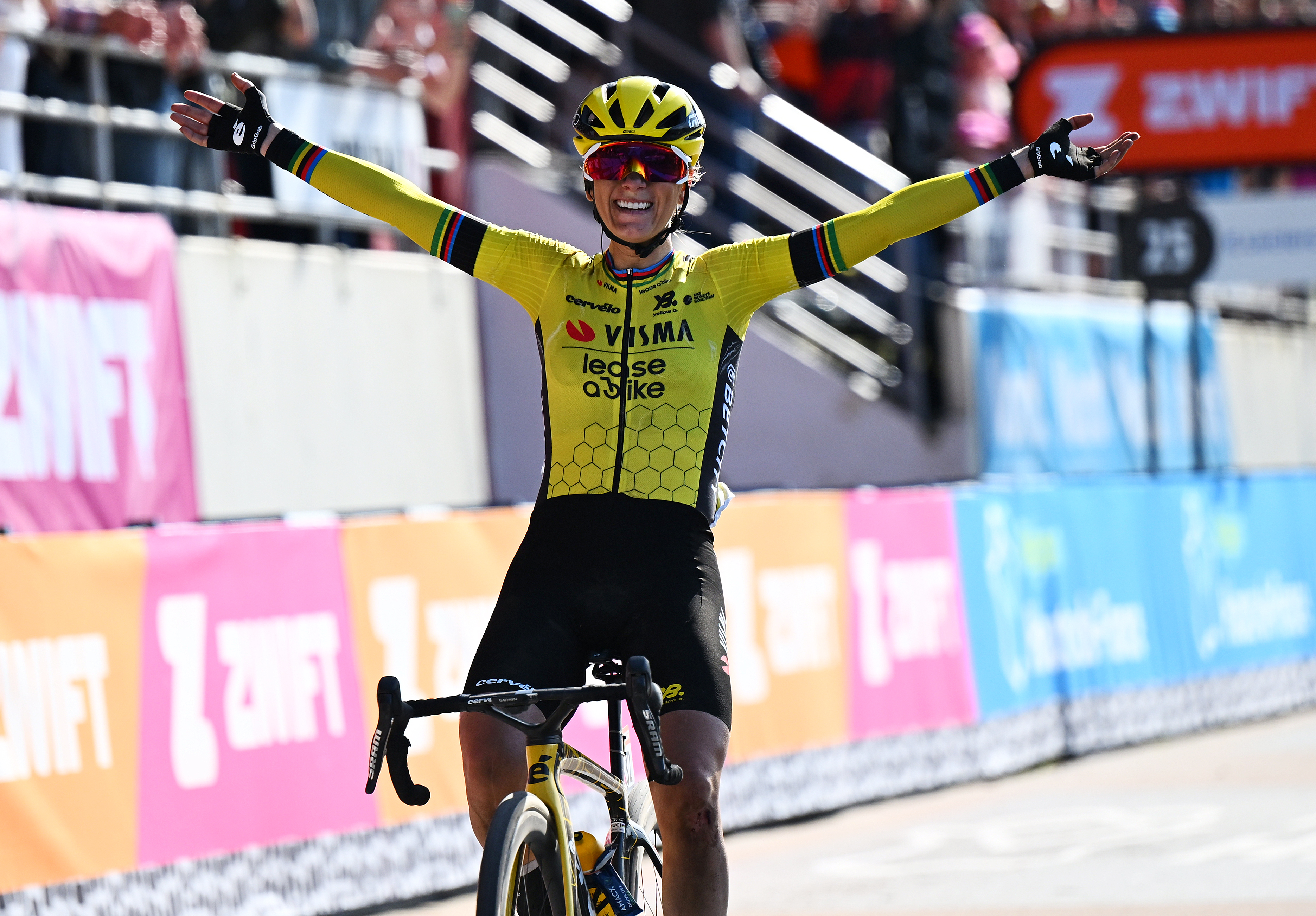 Pauline Ferrand-Prévot takes a sensational home victory in Paris-Roubaix
Pauline Ferrand-Prévot takes a sensational home victory in Paris-RoubaixFrenchwoman wins her Hell of the North debut as Letizia Borghesi takes second place and Lorena Wiebes is third
By Peter Cossins Published
-
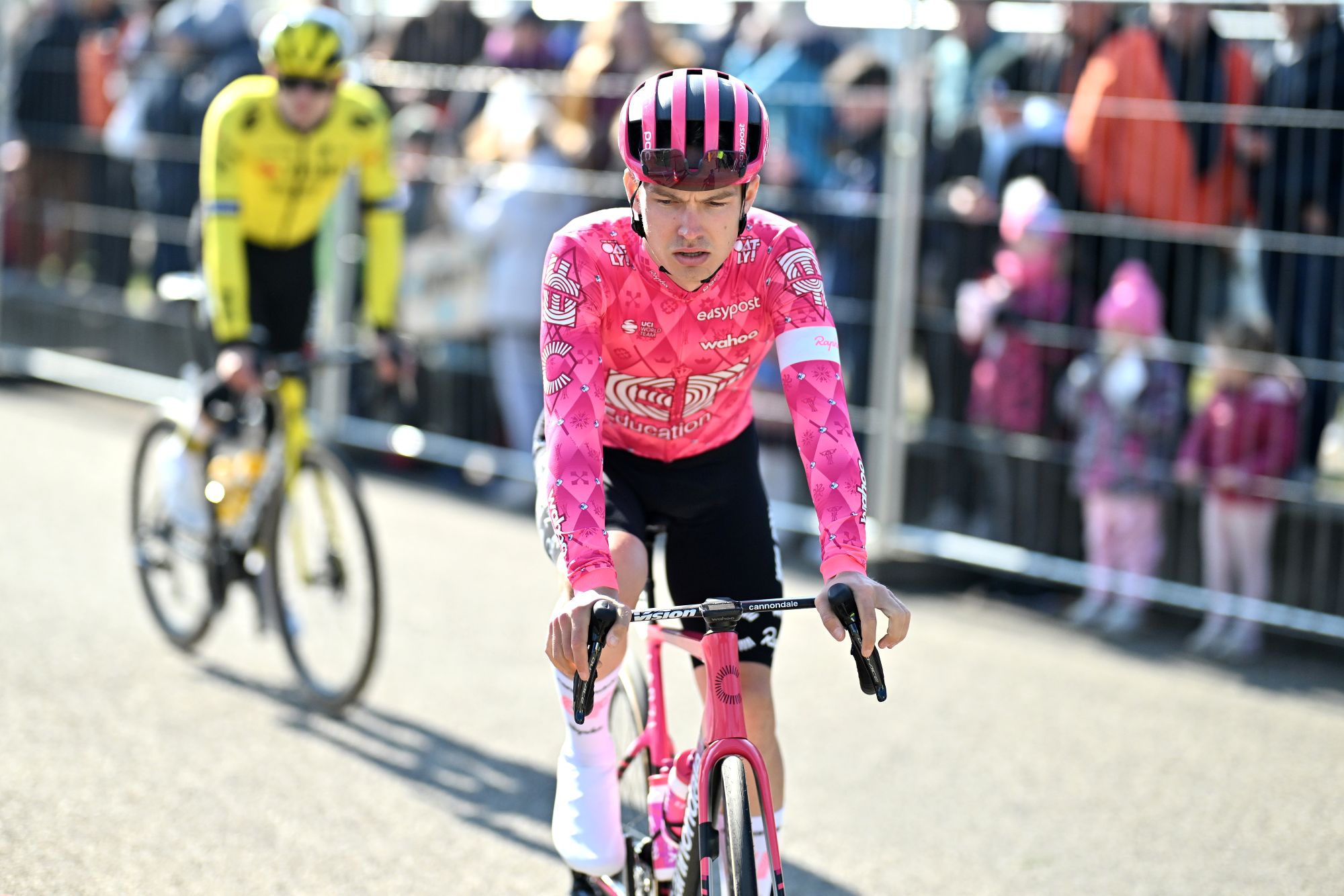 'It's the only race I’m a bit scared of' - Jack-Rootkin Gray on his Paris-Roubaix debut
'It's the only race I’m a bit scared of' - Jack-Rootkin Gray on his Paris-Roubaix debut22-year-old is in his second year with EF Education-EasyPost after making the move up the pyramid from Saint Piran
By Tom Thewlis Published